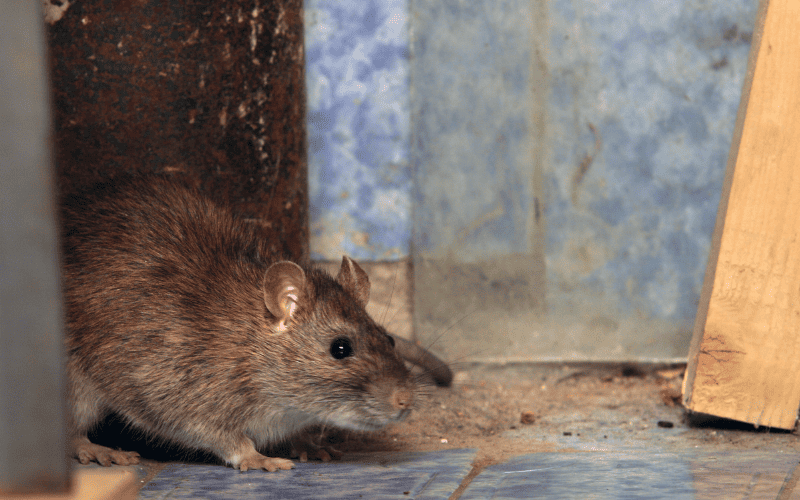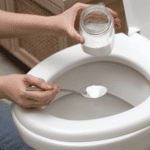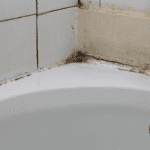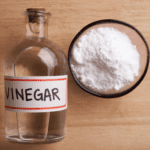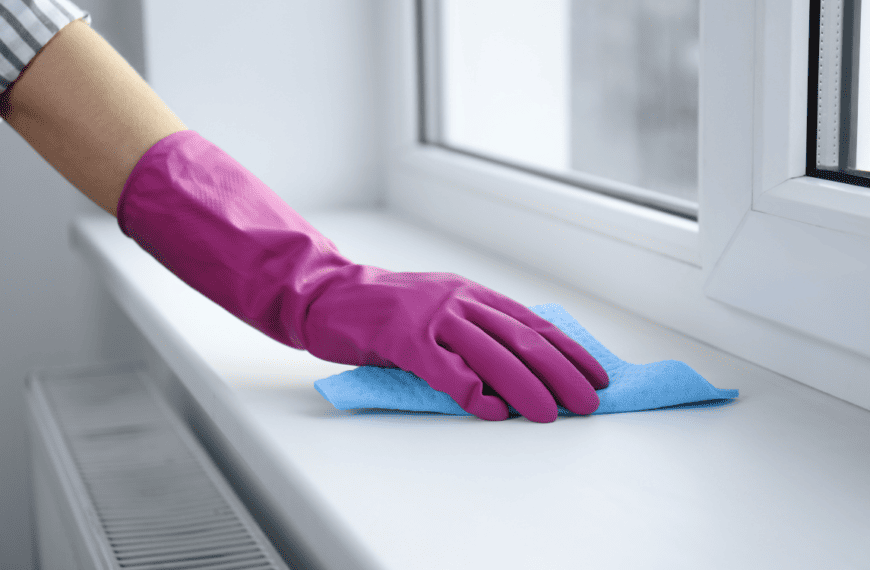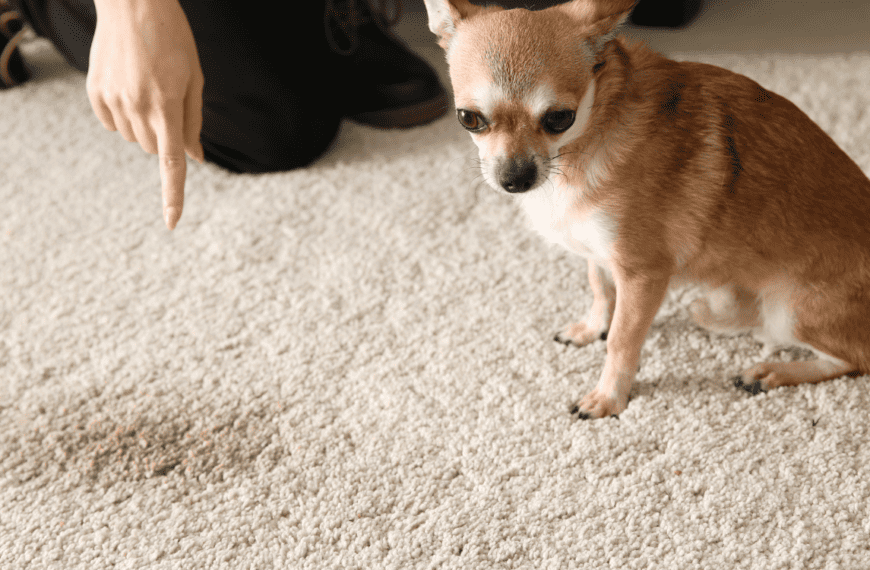As much as we hate finding a dead mouse lying on the floor, we’ll take it any day over smelling a dead mouse somewhere in the house. Running in the walls, under the floors, through air ducts, and behind cabinets, mice stick to the home’s most hard-to-reach places. And if they die there? Unfortunately, you’re stuck with one stinky source that can seem almost impossible to remove.
The situation may seem dire when a mysterious foul funk appears in the house, but we wouldn’t write this article if there wasn’t something you could do about it. If you’re worried about a decaying mouse lurking in your walls, we’ll explain how you can identify a dead rodent smell and what you can do to exterminate the stink.
What Does a Dead Mouse Smell Like?
Dead mice release sulfur-containing volatile organic compounds during decay, creating a rancid smell. The noxious blend of foul scents can include rotten cabbage, garlic, overcooked vegetables, spoiled eggs, and feces.
Shortly after it dies, a mouse’s dead body emits VOCs, including methanethiol, dimethyl disulfide, and dimethyl trisulfide, as the tissue decomposes. Many of these sulfurous gasses are common to vegetables like cabbage, broccoli, asparagus, and radishes, hence the familiar aroma.
After the first few days, further protein decay adds disagreeable pungent compounds such as fecal-smelling skatole, putrescine, cadaverine, and mercaptoacetic acid. The result is a revolting blend of foul smells that gets stronger for several days.
The bacteria breaking down and releasing the odors will also become more active with warmer, wetter conditions. If the area around the dead mouse heats up and gets more humid, the smell will become even thicker as the enzymatic breakdown accelerates.
Is a Dead Mouse Smell Harmful?
Dead mouse smells may be enough to clear the room, but they likely won’t cause physical harm. Bacteria and viruses are relatively heavy. While they may be abundant around the decomposing body, they generally can’t travel on a wafting foul odor to infect you unless a force propels them into the air.
Dead Mice Attract Pests
The dangerous part of a smelly dead animal in the wall is the pests it attracts. Although they significantly help to speed up the decay, bugs like blow flies, house flies, and mites can become a nuisance.
An insect infestation brings an entirely new set of problems. Flies can carry harmful bacteria and other microbes from the decomposed body and transmit disease through their bites. If maggots and flies appear, follow them to the source of the bad smell, and carefully remove the dead rodent.
Fun Fact: The dead mouse odor may not be dangerous to the household, but it could surprisingly affect your silverware. As we explained in a previous article, sulfurous gasses tarnish silver materials. It’s likely a low priority when the foul dead rodent scent fills the room, but protecting exposed heirloom items is an easy and worthwhile effort, especially if the stench lingers for several days.
Is It OK to Leave a Dead Mouse in the Wall?
Pinpointing a mouse hidden in a wall isn’t always possible. Fortunately, that’s not necessarily an enormous problem. If you have a one-time dead mouse in the house, it doesn’t attract pests, and the smell goes away in a few days, you may be able to get by without removing it.
When dead rodents become a recurring theme, you likely have infestation issues requiring a pest control professional. After the first dead animal, assess the preventative measures around your home to address and consider consulting an expert.
How to Locate a Dead Mouse in the Wall
Sniffing out a mouse might help you narrow the dead body down to a room, but honing in on the precise location isn’t easy with only your nose.
Look for visible signs of mouse activity. Flies and other pests can guide you to the source, as can collections of mouse droppings, paw prints and runs across common routes, chew marks, and bits of food.
Check for the source of the dead rodent smell in common hiding spots, including:
- Under furniture
- Behind the refrigerator
- Around plumbing
- In cabinets and closets
- In the attic
- Inside storage boxes
- In air ducts
If you think you’ve narrowed the odor to a particular section in the wall, air duct, or another hard-to-access area, consider using a borescope (see image below)to get an inside look. A quarter-sized hole is typically more than enough room to snake a camera into a wall and locate the source of the foul scent.
We recommend this digital borescope from DEPSTECH that has a 4.3″ LCD Screen, 7 LED Lights, and 16.5 feet of semi-rigid cable that is long enough to allow you to snake around in the wall so you don’t have to make a bunch of holes!
How to Remove a Dead Mouse
With rubber gloves on, carefully pick up and place the dead mouse in a plastic bag, tie it tightly, place the bag in a second plastic bag, and dispose of it in the garbage bin. Spray the area with a disinfectant such as bleach and water (1:16 ratio), and wipe it down.
How Do You Get Rid of a Dead Mouse Smell?
If you can’t find the dead mouse, one of the best ways to quickly eliminate the smell is by opening windows, turning on fans, and circulating fresh air. A room deodorizer spray can mask the dead mouse smell temporarily. Otherwise, a material to adsorb and neutralize the odor particles is your best bet for removing the stench.
Odor Eliminators to Control a Dead Mouse Smell
You probably have several DIY room deodorizers to use on a dead mouse smell in your home at this very moment. Try placing these household odor eliminators around whichever room has the rancid smell:
- Bowl of baking soda
- A plate of dry coffee grounds
- Apple sliced in half
- A dish of cat litter
For more practical tips for getting rid of the worst smells around the house, check out our article on deodorizing around the home.
The Best Way to Remove a Dead Rodent Odor
Activated charcoal deodorizer bags are some of the best options for removing foul odor particles from the room. With its vast surface area and regenerative ability, activated charcoal is highly effective at trapping odors, making it the foundation for many of our top household odor eliminator recommendations.
How Long Does It Take for a Dead Mouse to Stop Smelling?
A dead mouse smell will typically last about 1–2 weeks. It will linger until the mouse dries completely or microbes and scavengers devour the entire body. Several factors will affect how quickly it decomposes, including:
- Temperature and humidity (hot, moist environments will speed decay)
- The location of the dead rodent
- The size of the body
- Access to the body for decomposers
In an optimal decomposition situation, the smell may be pungent but will only last a few days. If the affected area is cold and there’s little microbial action around the dead mouse, the smell won’t be as intense but could last over a month.
Tips for Preventing Mice in the House
- Seal potential entrances. Caulk and patch holes and gaps around the foundation, gutters, pipe and utility entry points, eaves, and roof.
- Trim back vegetation. Remove brush, overgrown plants, and overhanging tree branches that can act as a bridge to your house
- Remove shelters. Keep woodpiles, compost bins, feeders, and other covers/food sources several yards away from the house
- Maintain a clean home. Clean countertops and sinks daily, take out the trash, and sweep and vacuum regularly to remove lures for mice
- Store food properly. Put pantry items in sealable plastic containers and put up pet food bowls every night to take away food sources
How Do I Know If a Smell Is a Dead Mouse?
The rotten vegetable smell of a decaying carcass could indicate a mouse or countless other critters. In the wall, it’s likely a mouse, rat, or squirrel. Rodents have agile and undersized bodies, allowing these persistent pests to invade nearly 15 million American homes annually!
Larger animals that might die in the house may have entered the attic, crawlspace, chimney, or garage. The smell will match the dead animal. A raccoon carcass, being larger, will have a proportionally worse stink than a mouse. And it will linger much longer than the 1–2 weeks you can expect from a dead rodent.
Do Dead Mice Eventually Stop Smelling?
The dead mice smell will go away at some point, even if a wall cavity turns into a rodent’s final resting place. Although there aren’t many positives to a mouse dying in your house, the one silver lining is that they’re small, meaning decomposition won’t take long. You may have to wait it out, but you don’t have to suffer.
Search out the source, monitor for pests, use a borescope if necessary, and follow these simple tips for removing and preventing dead mouse odors in your house.

